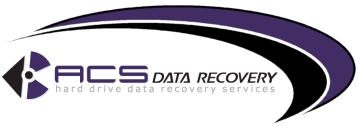|
Case studies include information about actual recoveries
completed within our lab. You may find similar symptoms to a problem
you are having with your drive. Here are a couple of recent cases:
• 250GB
Seagate Clicking
• 1TB Raid
0
|


|
|
**No Evaluation Fees / No Attempt Fees** Free evaluation and free external hard drive with every successfull recovery. You pay nothing unless your data is recoverable. Call now for a free quote: 1-800-717-8974. |
RAID 1 Data Recovery
RAID 1 creates an exact copy (or mirror) of a set of data on two or more
disks. This is useful when write performance is more important than minimizing
the storage capacity used for redundancy. This is thought to be a foolproof
method of data protection, but we commonly receive RAID 1 arrays that
have failed due to:
- corrupted mirrors
- bad data from one drive moves to the other drive
- mirror breaks, and does not allow system to boot
- improper rebuild
The array can only be as big as the smallest member disk, however. A
classic RAID 1 mirrored pair contains two disks, which increases reliability
by a factor of two over a single disk, but it is possible to have many
more than two copies. Since each member can be addressed independently
if the other fails, reliability is a linear multiple of the number of
members. To truly get the full redundancy benefits of RAID 1, independent
disk controllers are recommended, one for each disk. Some refer to this
practice as splitting or duplexing.
When reading, both disks can be accessed independently. Like RAID 0 the
average seek time is reduced by half when randomly reading but because
each disk has the exact same data the requested sectors can always be
split evenly between the disks and the seek time remains low. The transfer
rate would also be doubled. For three disks the seek time would be a third
and the transfer rate would be tripled. The only limit is how many disks
can be connected to the controller and its maximum transfer speed. Many
older IDE RAID 1 cards read from one disk in the pair, so their read performance
is that of a single disk. Some older RAID 1 implementations would also
read both disks simultaneously and compare the data to catch errors. The
error detection and correction on modern disks makes this less useful
in environments requiring normal commercial availability. When writing,
the array performs like a single disk as all mirrors must be written with
the data.
RAID 1 has many administrative advantages. For instance, in some 365*24
environments, it is possible to "Split the Mirror": declare one disk as
inactive, do a backup of that disk, and then "rebuild" the mirror. This
requires that the application support recovery from the image of data
on the disk at the point of the mirror split. This procedure is less critical
in the presence of the "snapshot" feature of some filesystems, in which
some space is reserved for changes, presenting a static point-in-time
view of the filesystem. Alternatively, a set of disks can be kept in much
the same way as traditional backup tapes are.
|
**No Evaluation Fees / No Attempt Fees** Call now for a free quote: 1-800-717-8974. For over a decade we have been dedicated to recovering data for clients across the globe.
|
|
|
Get setup as a reseller and get 10% off of all our
recovery services. 10% may not seem like a lot, but when you factor
in that we are already one of the lowest priced data recovery providers,
it can mean you have room for a substantial mark up.
|
|
ACS Data Recovery
1005 Marlandwood Rd. Suite 117
Temple, TX 76502

Get Detailed Driving Directions
Toll-Free: 1-800-717-8974
International: +1-254-774-8282
Fax: 1-800-717-8974
Email: info@acsdata.com
|
|

